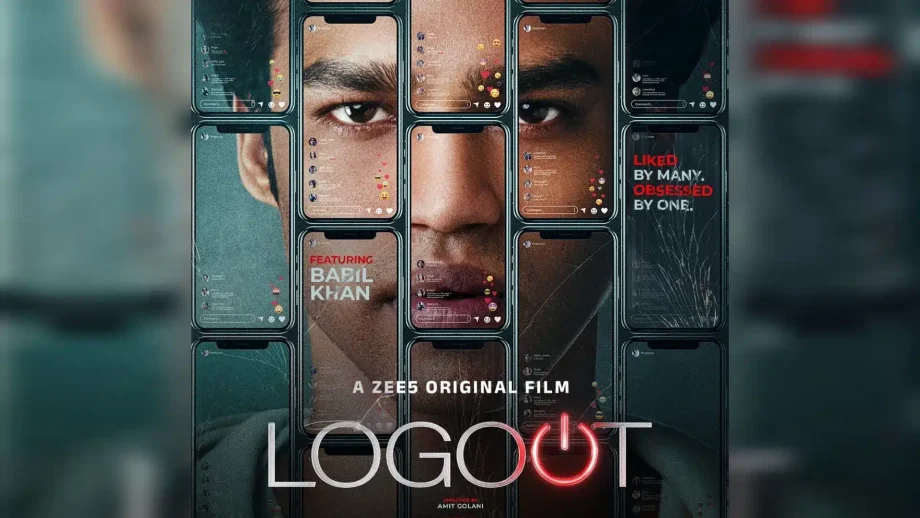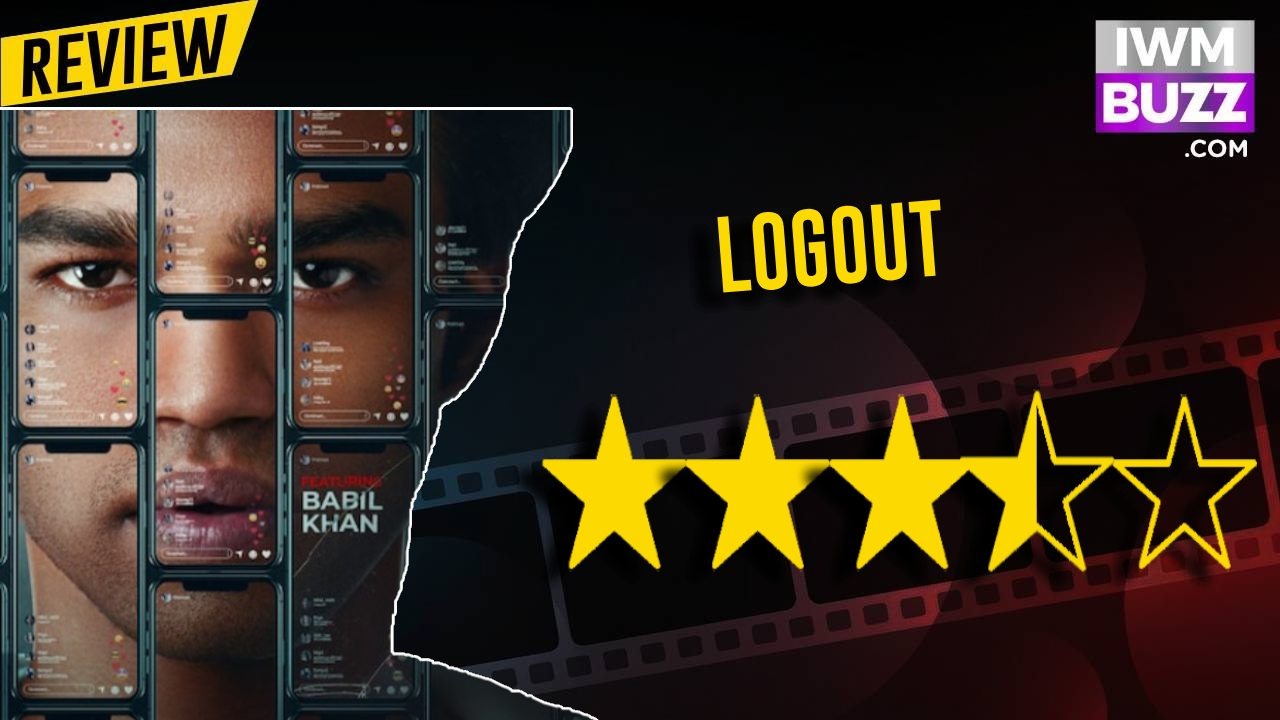Logout
Rating – ***1/2 (3.5/5)
Cast: Babil Khan, Rasika Duggal & more
Directed by: Amit Golani
Clicks, downloads, reels, likes, comments—and the never-ending carousel spins on. It’s borderline overwhelming to even fathom, in retrospect, how this virtual realm hasn’t just nudged its way into our existence but has practically hijacked the human craving for validation—seasoned with a dash of fame and a dollop of money for the lucky (and savvy) few. Enter: the era of influencers and content creators. But what transpires when one obsessive fan loses the plot and embarks on an unthinkable trajectory, forcing the creator at the receiving end to unravel and question the very fabric of his life? That’s essentially the heart and soul of Logout, a psychological digital drama streaming on Zee5, headlined by the enigmatic Babil Khan.
Hailing from the ever-reliable creative quarters of former TVF virtuosos, director Amit Golani and writer-producer Biswapati Sarkar, now sailing under their own artistic ship, Posham Pa Pictures, Logout meanders through both familiar digital-age corridors and a few uncharted backalleys with impressive finesse. The narrative peels back the glossy layers of virtual stardom to expose the raw, often unsettling underbelly that powers it.

Subtle scenes punctuate the script, like little alarm bells that echo how Babil Khan’s character, Pratyush, has submerged so deep into the digitized vortex that the lines between ethics and expediency, between humanity and performance, have long since dissolved.
One of the few areas where I began to feel a faint sense of disconnection was with the sheer relentlessness of the “screen within a screen” format that’s almost inseparable from the screenlife thriller genre. The constant tap-dance between apps, windows, and messages—ironically the very essence of modern interaction—starts to grate a little. And that’s precisely where Logout stands out with its first quiet rebellion: it isn’t tethered solely to screenlife gimmickry. Instead, it gives ample space to fictional drama, allowing for immersive storytelling that isn’t bogged down by a frantic scroll of interface switches. It breathes—and so do you.
Moreover, Logout aces the delicate art of layering its tale with nuance and symbolism—an often slippery slope in films that flirt with themes of virtual obsession. Subtle scenes punctuate the script, like little alarm bells that echo how Babil Khan’s character, Pratyush, has submerged so deep into the digitized vortex that the lines between ethics and expediency, between humanity and performance, have long since dissolved. One standout moment (no spoilers, of course) has Pratyush embroiled in an existential crisis so severe it could upend his entire life and career—yet he selfishly relishes his swelling follower count while locked in a viral rivalry with a fellow influencer in a race to hit the 10 million mark. It’s disturbing, yes—but hauntingly real.

Logout doesn’t lazily lean on technological trickery or pseudo-scientific jargon to bring its arcs to closure.
Logout largely triumphs in portraying the grim consequences—both preceding and following—our submission to the tyranny of virtual validation. It’s a modern horror story masked in familiar filters and ring lights. But the emotional threads? They hit hard. Not because they’re force-fed, but because they simmer organically, building intensity without theatrics.
It certainly doesn’t hurt that Babil Khan injects Pratyush with a certain aspirational charm—making his flaws and ethical blind spots oddly digestible. You find yourself empathizing with his questionable choices, because he remains inherently likeable. He’s the unconventional poster boy for fame, wearing his popularity with a casual swagger that never borders on arrogance, but rather laced with the vulnerability of someone not quite sure if he wants it all.
Then there’s the masterstroke casting of Rasika Dugal in a brief but poignant cameo as Pratyush’s on-screen sister. She plays the proverbial tether, trying to pull her brother back from the digital abyss and rethread his strained relationship with their parents. It’s subtle, effective, and emotionally intelligent—something that’s fast becoming a Golani-Sarkar signature.
One of the film’s most commendable decisions lies in its narrative restraint. Logout doesn’t lazily lean on technological trickery or pseudo-scientific jargon to bring its arcs to closure. The script respects its characters too much for that, opting instead for emotional and thematic payoffs that feel earned rather than engineered.
That said, the film does stumble in a rather predictable pothole—something of a Zee5 trademark at this point. The overall production quality feels a tad undercooked, with certain aesthetic choices and post-production elements coming off as slightly rough around the edges. It doesn’t tank the experience, but it does ever so slightly dull the impact. Additionally, the climactic clash between the deranged fan and Pratyush does drift into melodramatic waters. While the emotional crescendo could have worked if it had been a notch subtler, it instead spirals into heightened theatrics that momentarily snap the narrative’s grounded tone.
In conclusion, Logout emerges as a thoughtful mash-up of screenlife thriller and fictional drama that dares to do more than just skim the surface. It engages, provokes, and occasionally unsettles—with a touch of flair, a dash of darkness, and an ending dystopian shot that lingers like a notification you never really wanted.


